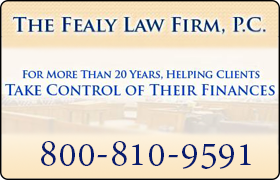Hockley Collection Lawyer, Texas, page 2
Sponsored Law Firm
-
 x
x

Click For More Info:
-
The Fealy Law Firm, P.C.
1235 North Loop West Suite 1005 Houston, TX 77008 » view mapBankruptcy, Judgments, & Foreclosures Houtson Bankruptcy Lawyers
Helping clients take control of their finances, for more that years. Board Certified in Consumer Bankruptcy by the Texas Board of Legal Specialization.
800-810-9591  Vicky Fealy Houston, TX
Vicky Fealy Houston, TX Attorney At Law - Texas, 1991
University of Houston Law Center, J.D.
 Frequently Asked Questions
Frequently Asked QuestionsBankruptcy Frequently Asked Questions
 Contact UsEmail or Call 24/7
Contact UsEmail or Call 24/7Timing is often critical and you really need to seek advice early.
Amy Christine Oliphi Klam
Oil & Gas, Insurance, Collection, Products Liability
Status: In Good Standing Licensed: 23 Years
Mohammad Ali Mehboob
Accident & Injury, Estate, Collection, Criminal, Immigration
Status: In Good Standing Licensed: 8 Years
Barry Lewis Racusin
Bankruptcy & Debt, Real Estate, Real Estate Other, Foreclosure, Collection
Status: In Good Standing


 Vicky Fealy Houston, TX
Vicky Fealy Houston, TX  Frequently Asked Questions
Frequently Asked Questions Contact UsEmail or Call 24/7
Contact UsEmail or Call 24/7
